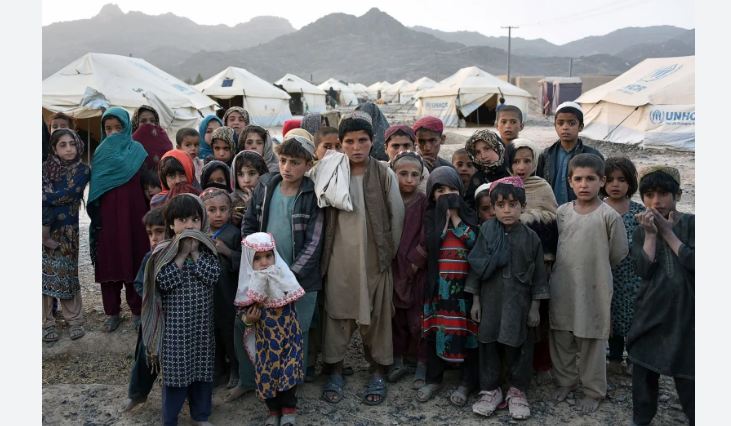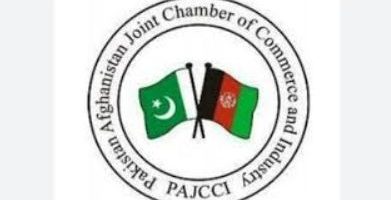Failure to evolve effective refugee policy left them vulnerable
 ISLAMABAD, MAR 24 /DNA/ – Consistent failure to evolve an effective refugee policy for Afghan migrants and refugees has created stress and suffering among Afghan communities, and left them vulnerable to exploitation and poverty, stated experts at Jinnah Institute’s roundtable titled ‘Status of Afghan Refugees & Migrants; A Humanitarian Perspective’, hosted in partnership with Verso Consulting on 22nd March 2023.
Pakistan has hosted a large Afghan refugee population over four decades since 1979. There are approximately 1.3 million registered Afghan refugees according to NADRA, of whom 58% are based in Khyber Pakhtunkhwa, 23% live in Balochistan, and the rest are scattered in Pakistan’s urban centres.
Unregistered Afghan refugees range between 400,000 and 775,000, and there has been a significant wave of more refugees forced to cross the border for fear of persecution or threat to their lives and livelihoods after the Taliban takeover of Afghanistan on 15th August 2021. However, there has never been a clear policy on how to deal with refugees owing to lack of political willingness and intent, participants stated.
Participants discussed that Pakistan is not a signatory to the UN Refugee Convention 1951 or its accompanying Protocol of 1967, and consequently no attention has been paid to asylum laws.
Pakistan Citizenship Act of 1951 does not address the legal status of asylum seekers, although UNHCR and Government of Pakistan issued Proof of Registration to Afghan refugees in 2006-2007 after a census of refugees was held in 2005. Additionally, about 840,000 Afghan Citizen Cards were issued in 2017-18.
It should be emphasized that these efforts have been piecemeal and simply do not address the magnitude of challenges and human rights abuse faced by refugees in Pakistan. Participants stated that Afghan refugees are daily subjected to threat, intimidation, violence and extortion by law enforcement agencies and others.
They cannot access healthcare in public hospitals for lack of registration, nor enroll their children in school. They are forced to work in the informal sector, if at all livelihoods are available. As a result, most Afghan refugees have been pushed into poverty and are concentrated in peri-urban slum localities. In addition, there is deep seated social prejudice and discrimination against them. Much of this emanates from unclear policy frameworks on how to integrate the refugee population and facilitate their presence in the country.
Participants debated whether Pakistan had done enough for refugees already, as some felt the burden of hosting alien communities had taken a toll on the economy and social fabric.
They also felt the responsibility to host more refugees lay with the international community. However, the war in Ukraine had dramatically changed the priorities of international development assistance, as well as countries attentive to the Afghan refugee crisis.
Pakistan should improve its border management mechanisms and pay more attention to the plight of Afghan refugees. Participants also felt that the demand for development assistance was misplaced, as the refugee challenge was one of our own making, and alleviating the plight of Afghan refugees is an obligation we have deliberately evaded.=DNA
================
ISLAMABAD, MAR 24 /DNA/ – Consistent failure to evolve an effective refugee policy for Afghan migrants and refugees has created stress and suffering among Afghan communities, and left them vulnerable to exploitation and poverty, stated experts at Jinnah Institute’s roundtable titled ‘Status of Afghan Refugees & Migrants; A Humanitarian Perspective’, hosted in partnership with Verso Consulting on 22nd March 2023.
Pakistan has hosted a large Afghan refugee population over four decades since 1979. There are approximately 1.3 million registered Afghan refugees according to NADRA, of whom 58% are based in Khyber Pakhtunkhwa, 23% live in Balochistan, and the rest are scattered in Pakistan’s urban centres.
Unregistered Afghan refugees range between 400,000 and 775,000, and there has been a significant wave of more refugees forced to cross the border for fear of persecution or threat to their lives and livelihoods after the Taliban takeover of Afghanistan on 15th August 2021. However, there has never been a clear policy on how to deal with refugees owing to lack of political willingness and intent, participants stated.
Participants discussed that Pakistan is not a signatory to the UN Refugee Convention 1951 or its accompanying Protocol of 1967, and consequently no attention has been paid to asylum laws.
Pakistan Citizenship Act of 1951 does not address the legal status of asylum seekers, although UNHCR and Government of Pakistan issued Proof of Registration to Afghan refugees in 2006-2007 after a census of refugees was held in 2005. Additionally, about 840,000 Afghan Citizen Cards were issued in 2017-18.
It should be emphasized that these efforts have been piecemeal and simply do not address the magnitude of challenges and human rights abuse faced by refugees in Pakistan. Participants stated that Afghan refugees are daily subjected to threat, intimidation, violence and extortion by law enforcement agencies and others.
They cannot access healthcare in public hospitals for lack of registration, nor enroll their children in school. They are forced to work in the informal sector, if at all livelihoods are available. As a result, most Afghan refugees have been pushed into poverty and are concentrated in peri-urban slum localities. In addition, there is deep seated social prejudice and discrimination against them. Much of this emanates from unclear policy frameworks on how to integrate the refugee population and facilitate their presence in the country.
Participants debated whether Pakistan had done enough for refugees already, as some felt the burden of hosting alien communities had taken a toll on the economy and social fabric.
They also felt the responsibility to host more refugees lay with the international community. However, the war in Ukraine had dramatically changed the priorities of international development assistance, as well as countries attentive to the Afghan refugee crisis.
Pakistan should improve its border management mechanisms and pay more attention to the plight of Afghan refugees. Participants also felt that the demand for development assistance was misplaced, as the refugee challenge was one of our own making, and alleviating the plight of Afghan refugees is an obligation we have deliberately evaded.=DNA
================
« Senate Committee summons MC of Gun & Country Club Islamabad (Previous News)
(Next News) Why Crossing LOC isn’t a cakewalk for Indian Military »
Related News

PAJCCI welcomes Pakistan-Afghanistan PTA, a Long Standing Demand
KARACHI, JUL 26: /DNA/ – The Pakistan Afghanistan Joint Chamber of Commerce and Industry (PAJCCI),Read More

Muttaqi reiterates ‘no foreign troops at Bagram’
KABUL, JUL 20: Amir Khan Muttaqi, Acting Minister of Foreign Affairs of Afghanistan, has stronglyRead More


Comments are Closed